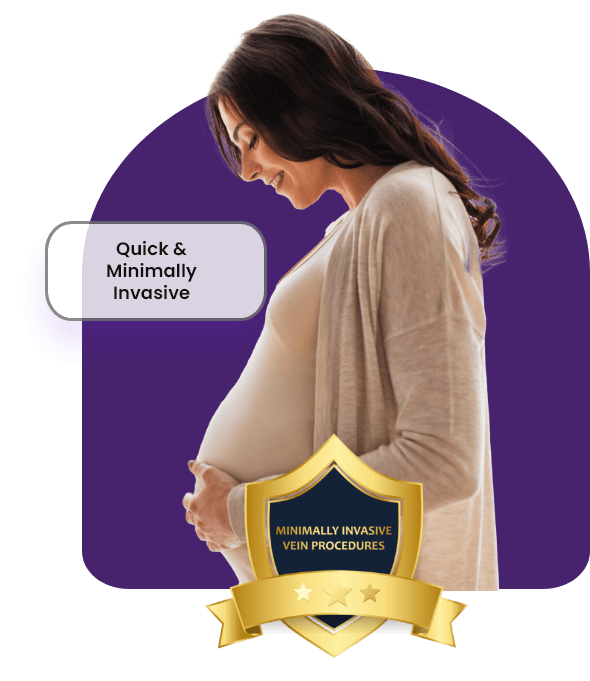Experiencing any spider or varicose vein symptoms during pregnancy?
We are here to help!
Pregnant women are at higher risk for varicose veins, even if they have no other risk factors. However, some women are more likely than others to develop this condition. For example, genetics plays an important role in varicose veins.


Information give us the power to decide!
What treatment fits you better? Are those annoying spider veins are going to disappear after pregnancy? Learn everything you need to know about spider and varicose veins during pregnancy to make a decision.
What do you need to know about pregnancy and varicose and spider veins?
When you decide to get pregnant, your thoughts are mostly of the smiling cherub that you will have at the end of nine months. Or maybe the extra attention you will end up getting. Unfortunately, pregnancy has its darker side too – the nausea, the fatigue, the stretch marks, and… the spider veins. “You’ll get through it, it’s only nine months” is a phrase that you will be hearing really often. While we don’t have that magic wand handy to vanish these issues, we can help you with preventing and managing spider veins.
Minimally Invasive Treatments
Compasionate Healtcare Service
Double Board Vein Experts
Can you prevent spider veins from forming during your pregnancy?
Yes! If you learn ways to decrease the pressure of blood in your leg veins, you may be able to prevent the appearance of spider veins. Here are 4 tips to help you achieve this:
1
Exercise regularly: If you are on the move, your leg muscles will keep pumping blood back to your heart, which helps keep the pressure low. Walking is a good idea, and has a whole host of other benefits as well.
2
Take Vitamin C supplements: Vitamin C helps build collagen and elastin, two key proteins that maintain the integrity of the blood vessel walls and strengthen them.
3
Keep your feet up: Elevating your legs can help drain blood from them to your heart. Try putting your feet up on a pillow whenever you sit or lie down.
4
Sleep on your left side: Sleeping on your left side takes the pressure off your inferior vena cava, allowing the blocked blood to flow back to the heart.
Okay, you have some spider veins…
Should you get them treated during your pregnancy?
If your spider veins don’t really bother you, you can leave them alone for the duration of your pregnancy. If you do notice the following features, though, it may be time to visit a vein doctor.
Your spider veins are painful, swollen or tender.
There is reddish discolouration of the skin around the spider veins.
There is bleeding from the spider veins.
The above may signal a deeper problem, like varicose veins, or chronic venous insufficiency. These conditions must be evaluated for severity by a board certified vein specialist.
During pregnancy, your vein doctor may have you fitted for compression hose/ compression stockings. These stockings will massage your legs and pump up the blood circulation, and will reduce your symptoms. The spider veins themselves will most probably disappear around three months after childbirth. If they don’t go away, you can consider visiting your vein doctor again.



